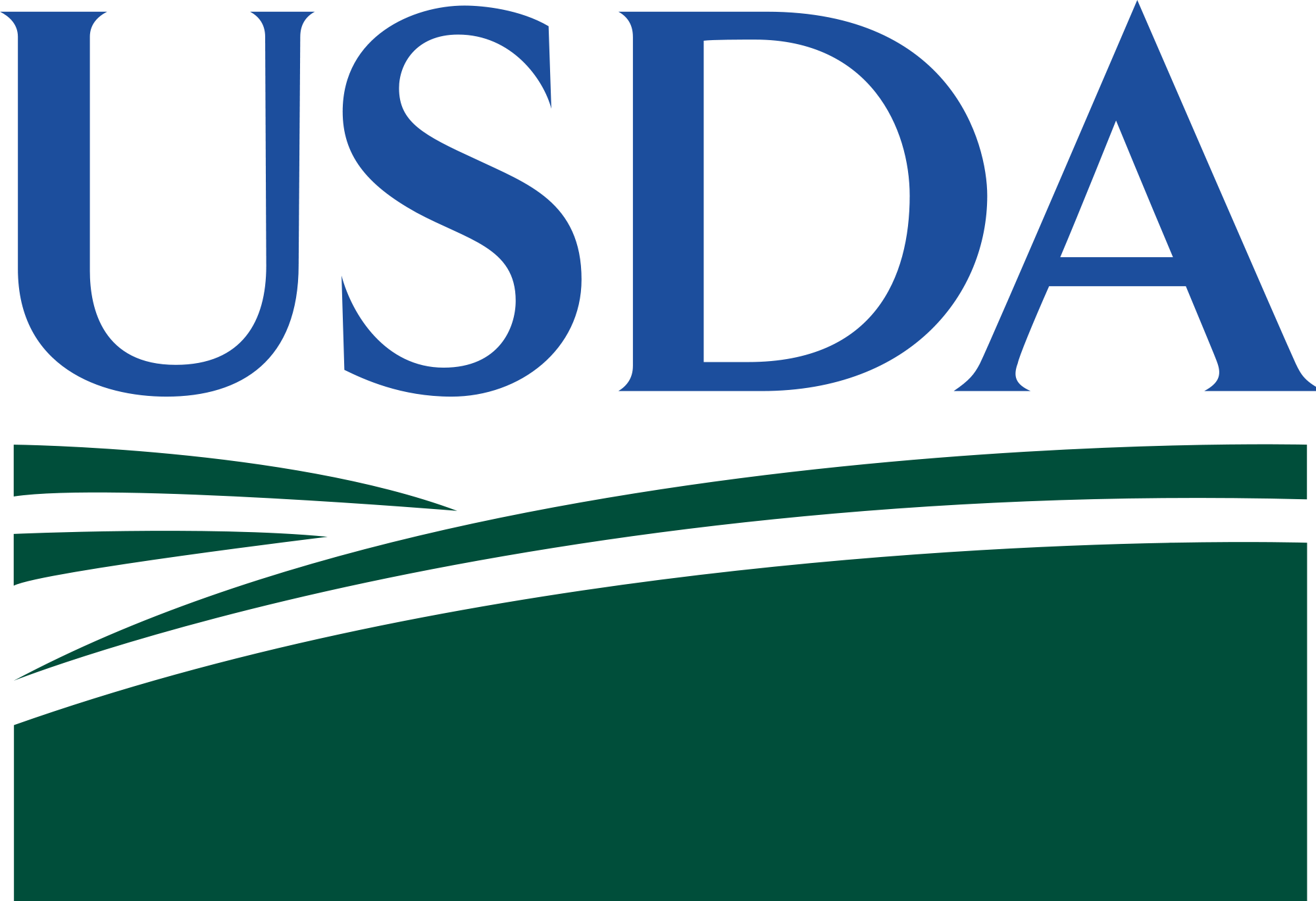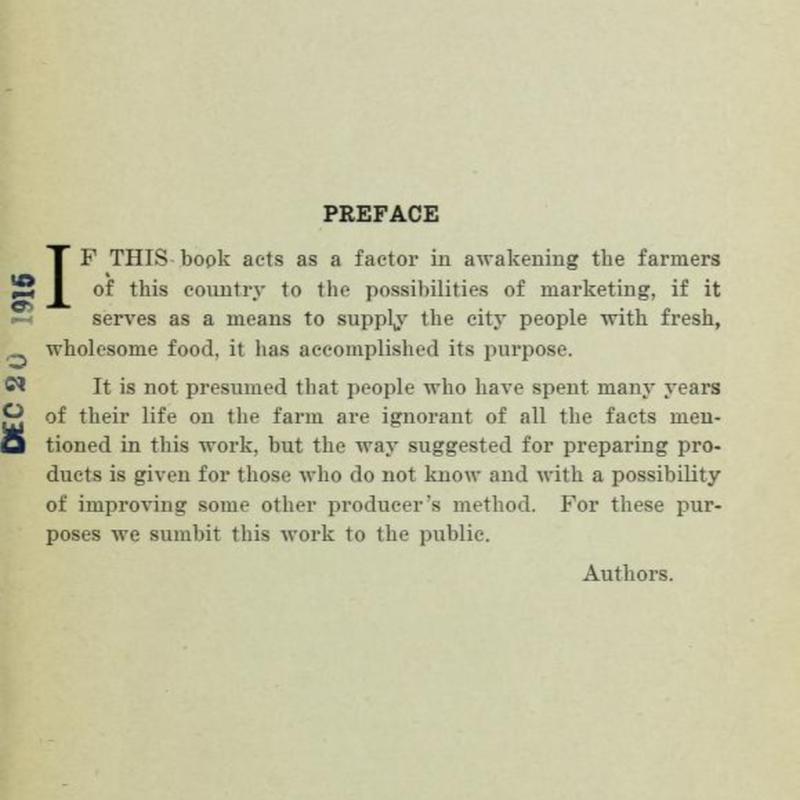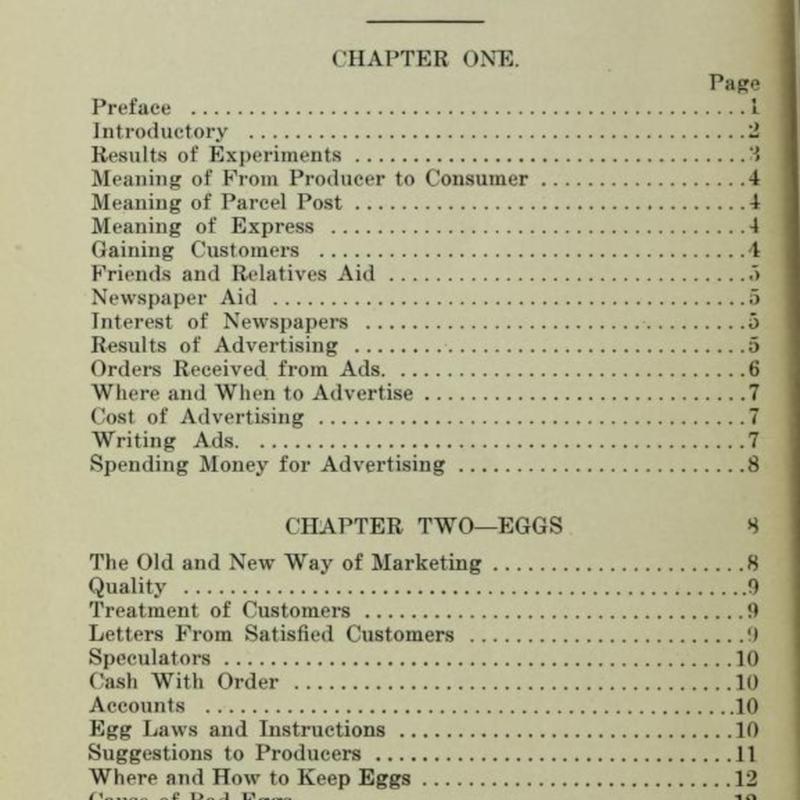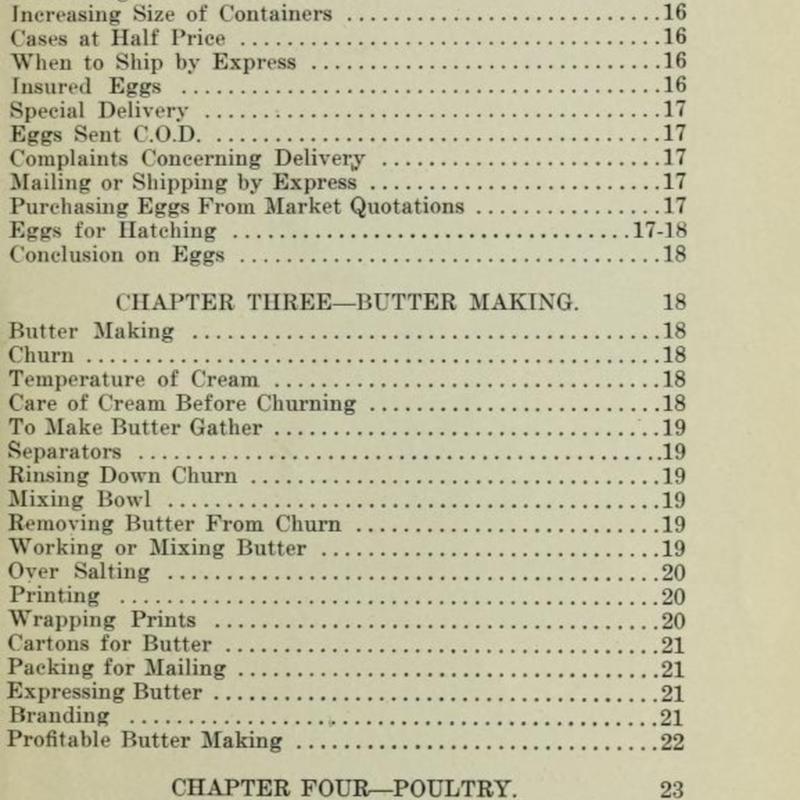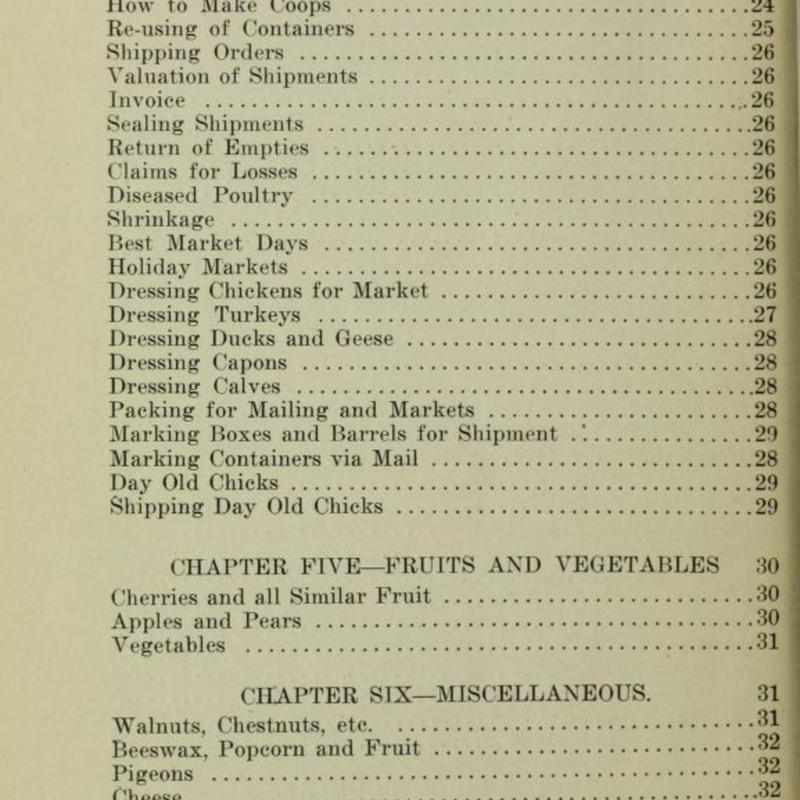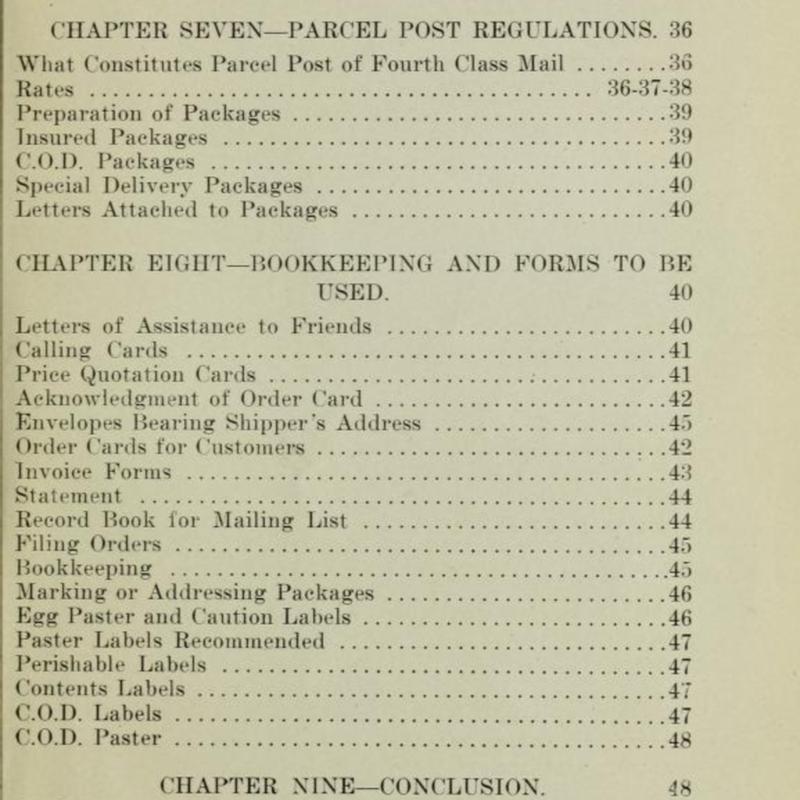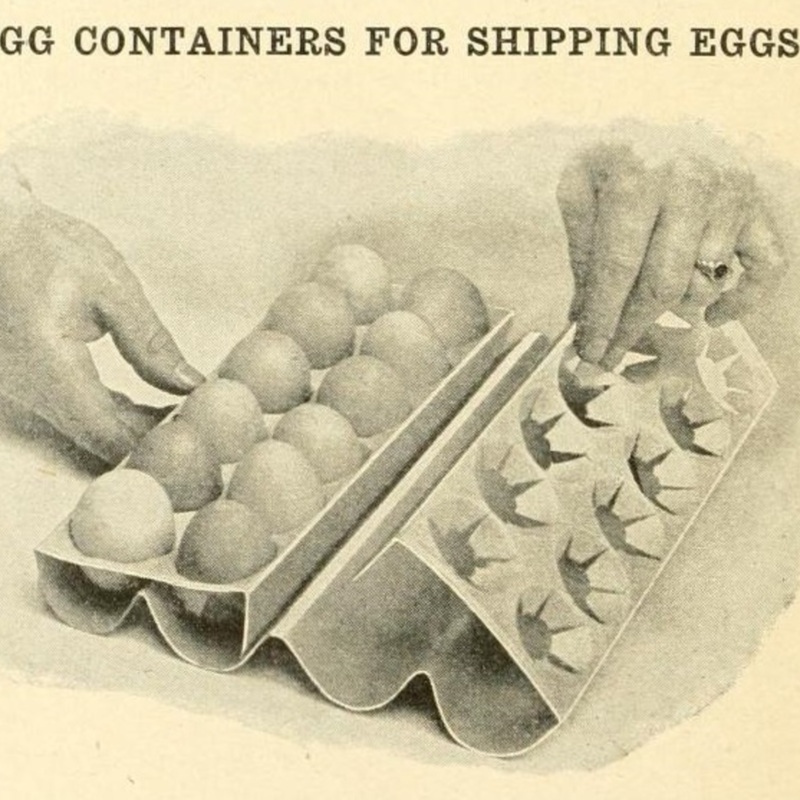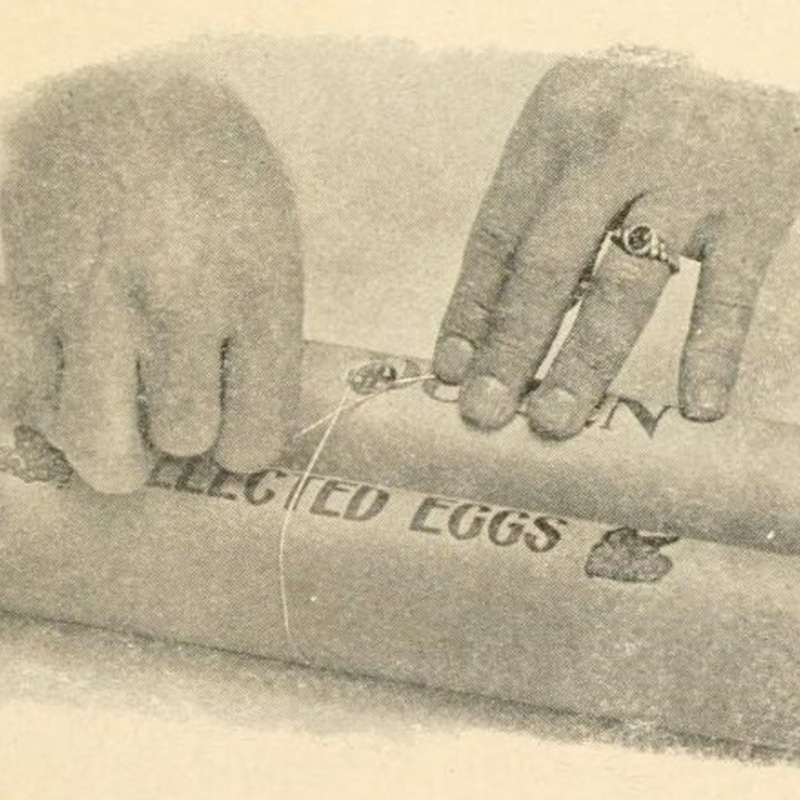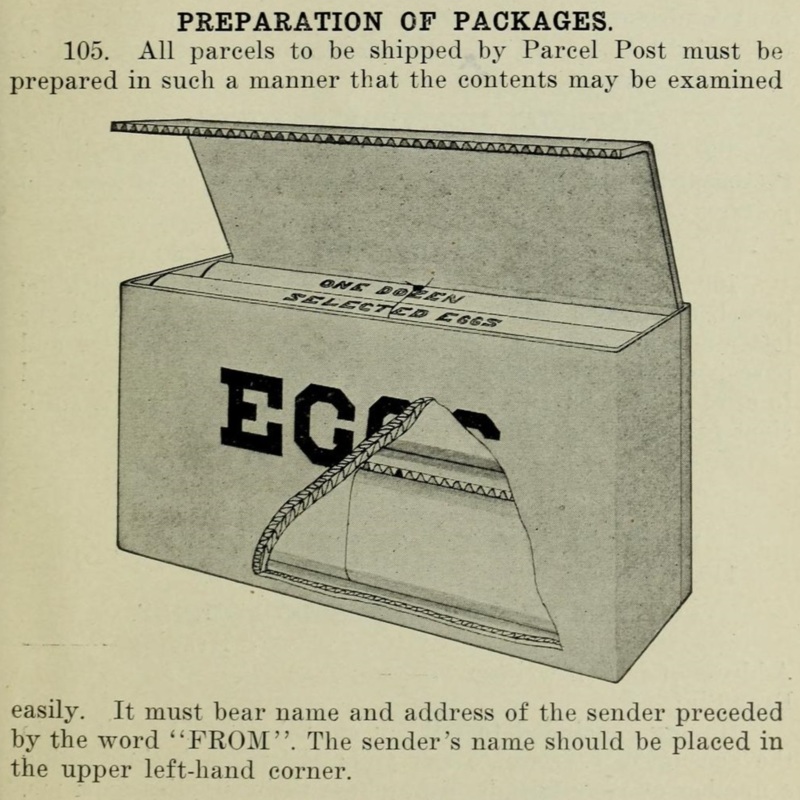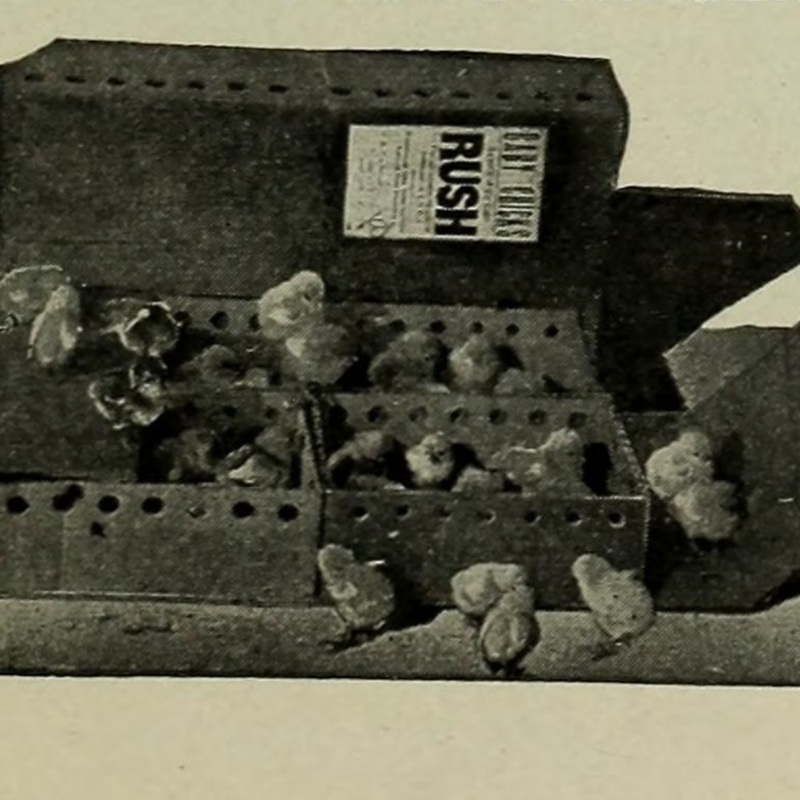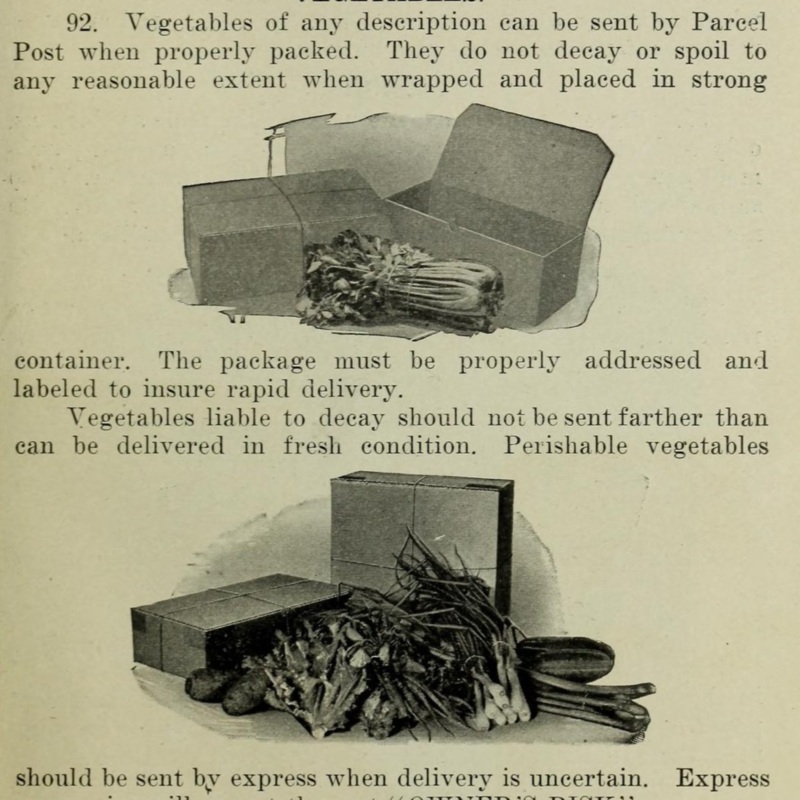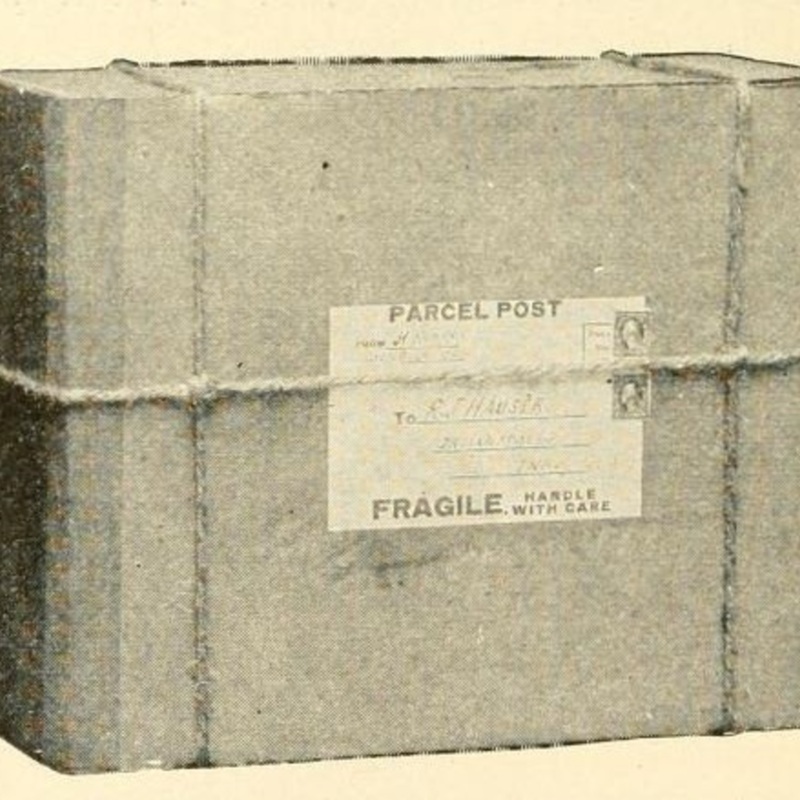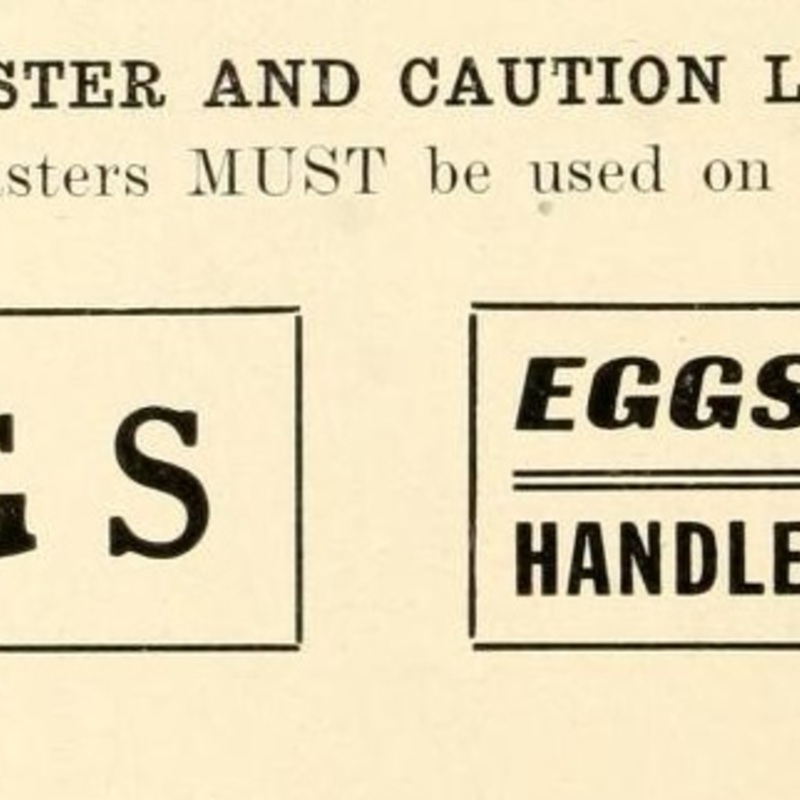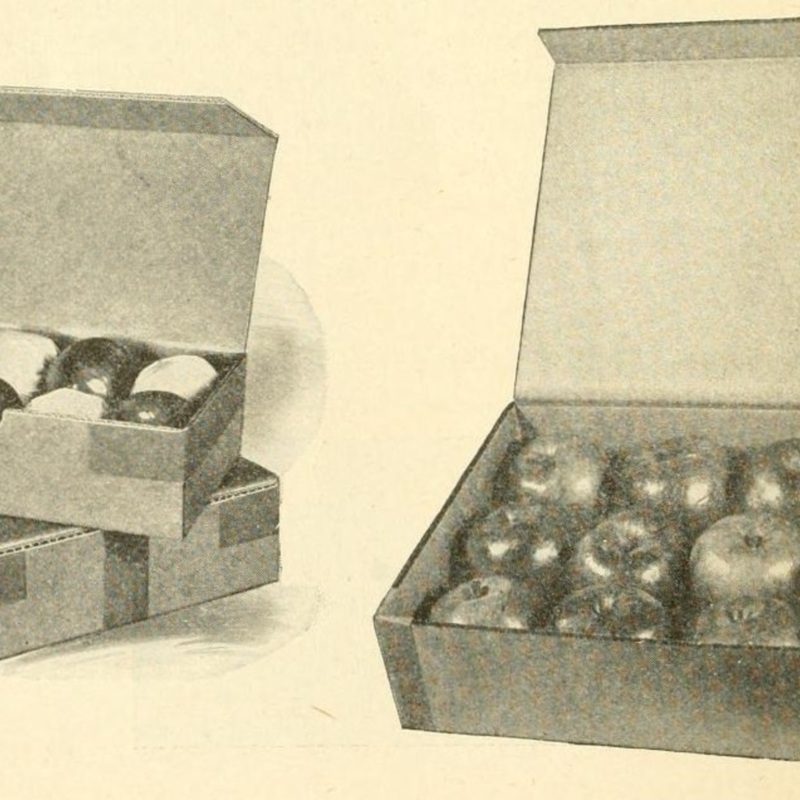The Producer's Marketing Guide: The Connecting Link Between Producer and Consumer
Title
The Producer's Marketing Guide: The Connecting Link Between Producer and Consumer
Date
1915
Excerpt
It is the purpose of this book and the intention of the authors to bridge that vast chasm between the producer and the consumer.
Those who work hardest in this world reap the smallest profit. Those who do the drudgery in the factory, mine, or sweat shop pay the highest prices for their scanty living. Our system is wrong. Producers, or farmers, must deal with consumers. Middlemen are the parasites of the other classes. They produce nothing. They live from the sweat of other people's toil. When an article leaves the farmer's hands and reaches the consumer at a double price everyone wonders why. More has been said in the last decade about the high cost of living than in 50 years preceding.
It will be shown in this book how to increase the farmers profit 25¢ and at the same time lessen the consumers' cost 20¢.
The problem of marketing is just as important a feature of farm work as production. Two sides must be considered on the question of marketing; first, the city housewife, and, second, the farmer. Under present marketing conditions the housewife complains that after paying what seems to her exorbitant prices for eggs she seldom obtains a really fresh one, and a large percentage of those purchased are absolutely un-fit for food. The farmer complains that after feeding his hens and caring for them during the long unprofitable winter months he is only paid 15 cents per dozen for eggs, while they retail at 30 cents in the nearby large cities.
We are indeed thankful that a remedy exists which will change these conditions. Our law-makers have provided a remedy in the shape of the Parcel Post Law. Today eggs or any product can reach the consumer one hundred miles away in ten hours after it has been produced. Who will gain by this new system? The consumer will gladly pay 30 cents for a dozen strictly fresh eggs rather than 30 cents for nine stale and three rotten ones. And what will be the farmer's comment? Five cents for mailing and packing will leave him a profit of 10 cents above the regular market price. Who will suffer? Those who will be forced to work on account of this system.
It was for the producer and consumer that Congress passed the Parcel Post Law. Many people make use of Parcel Post but not in the way of marketing produce. They must learn to create a demand for their produce, as making sales in nearby towns and cities. The day is past when people look for quantity instead of quality. The method of being supplied with fresh country products direct from the producer is now in its infancy, and the farmer who awakens to this fact will be gathering the golden harvest of today's middleman.
Those who work hardest in this world reap the smallest profit. Those who do the drudgery in the factory, mine, or sweat shop pay the highest prices for their scanty living. Our system is wrong. Producers, or farmers, must deal with consumers. Middlemen are the parasites of the other classes. They produce nothing. They live from the sweat of other people's toil. When an article leaves the farmer's hands and reaches the consumer at a double price everyone wonders why. More has been said in the last decade about the high cost of living than in 50 years preceding.
It will be shown in this book how to increase the farmers profit 25¢ and at the same time lessen the consumers' cost 20¢.
The problem of marketing is just as important a feature of farm work as production. Two sides must be considered on the question of marketing; first, the city housewife, and, second, the farmer. Under present marketing conditions the housewife complains that after paying what seems to her exorbitant prices for eggs she seldom obtains a really fresh one, and a large percentage of those purchased are absolutely un-fit for food. The farmer complains that after feeding his hens and caring for them during the long unprofitable winter months he is only paid 15 cents per dozen for eggs, while they retail at 30 cents in the nearby large cities.
We are indeed thankful that a remedy exists which will change these conditions. Our law-makers have provided a remedy in the shape of the Parcel Post Law. Today eggs or any product can reach the consumer one hundred miles away in ten hours after it has been produced. Who will gain by this new system? The consumer will gladly pay 30 cents for a dozen strictly fresh eggs rather than 30 cents for nine stale and three rotten ones. And what will be the farmer's comment? Five cents for mailing and packing will leave him a profit of 10 cents above the regular market price. Who will suffer? Those who will be forced to work on account of this system.
It was for the producer and consumer that Congress passed the Parcel Post Law. Many people make use of Parcel Post but not in the way of marketing produce. They must learn to create a demand for their produce, as making sales in nearby towns and cities. The day is past when people look for quantity instead of quality. The method of being supplied with fresh country products direct from the producer is now in its infancy, and the farmer who awakens to this fact will be gathering the golden harvest of today's middleman.
Publisher
New Paris, IN: Producer's Marketing Guide Company
File(s)
The Producers Marketing Guide Cover.jpg
(image/jpeg)
The Producer's Marketing Guide Preface.jpg
(image/jpeg)
Producers Marketing Guide TOC 1.jpg
(image/jpeg)
Producers Marketing Guide TOC 2.jpg
(image/jpeg)
Producers Marketing Guide TOC 3.jpg
(image/jpeg)
Producers Marketing Guide TOC 4.jpg
(image/jpeg)
Egg Container 1.jpg
(image/jpeg)
Egg Container 3.jpg
(image/jpeg)
Producers Marketing Guide Egg Box.jpg
(image/jpeg)
Producers Marketing Guide Chicks.jpg
(image/jpeg)
Producers Marketing Guide Vegetables.jpg
(image/jpeg)
Egg Labels.jpg
(image/jpeg)
Egg Labels 2.jpg
(image/jpeg)
Apples and Pears.jpg
(image/jpeg)
 An official website of the United States government.
An official website of the United States government.
